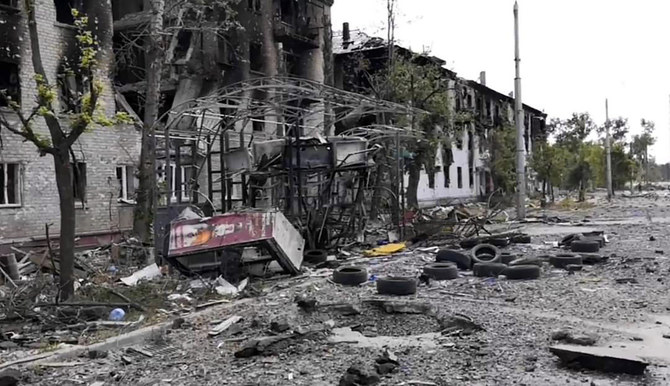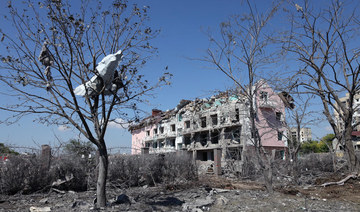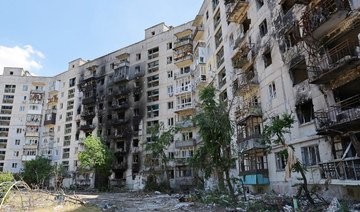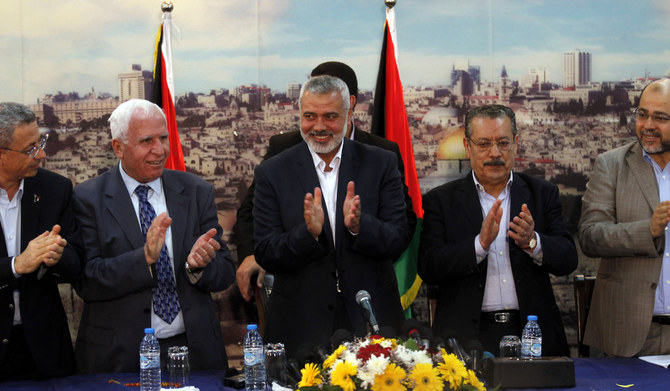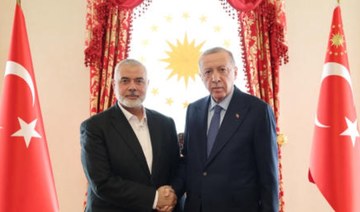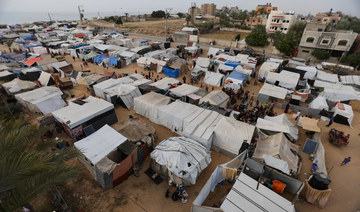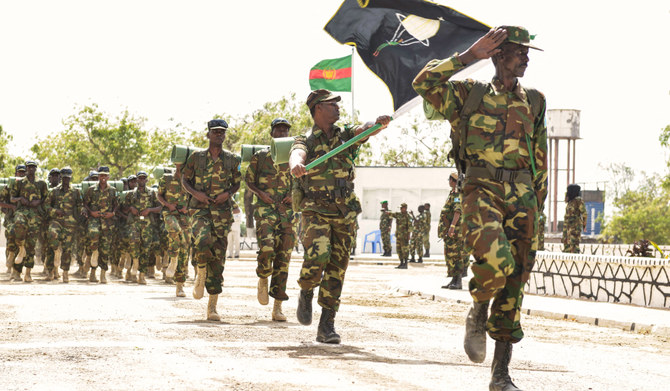KYIV: Ukraine’s forces have withdrawn from the bombed-out city of Lysychansk, prompting Russia to claim full control of the eastern Luhansk region, a key Kremlin war goal, but President Volodymyr Zelensky vowed to regain the lost territory.
Ukraine on Sunday said the tactical withdrawal would save the lives of its soldiers who would regroup, to launch a counter offensive with the help of long-range Western weapons.
But Moscow said the capture of Lysychansk less than a week after taking neighboring Sievierdonetsk meant it had “liberated” Luhansk. It said it will give Luhansk to the self-proclaimed Russian-backed Luhansk People’s Republic whose independence it recognized on the eve of the war.
The battlefield focus now shifts to the neighboring Donetsk region, where Kyiv still controls swathes of territory.
“If the commanders of our army withdraw people from certain points at the front, where the enemy has the greatest advantage in firepower, and this also applies to Lysychansk, it means only one thing,” Zelensky said in his nightly video on Sunday.
“That we will return thanks to our tactics, thanks to the increase in the supply of modern weapons.”
Zelensky said Russia was concentrating its firepower on the Donbas front, but Ukraine would hit back with long-range weapons such as the US-supplied HIMARS rocket launchers.
“The fact that we protect the lives of our soldiers, our people, plays an equally important role. We will rebuild the walls, we will win back the land, and people must be protected above all else,” Zelensky said.
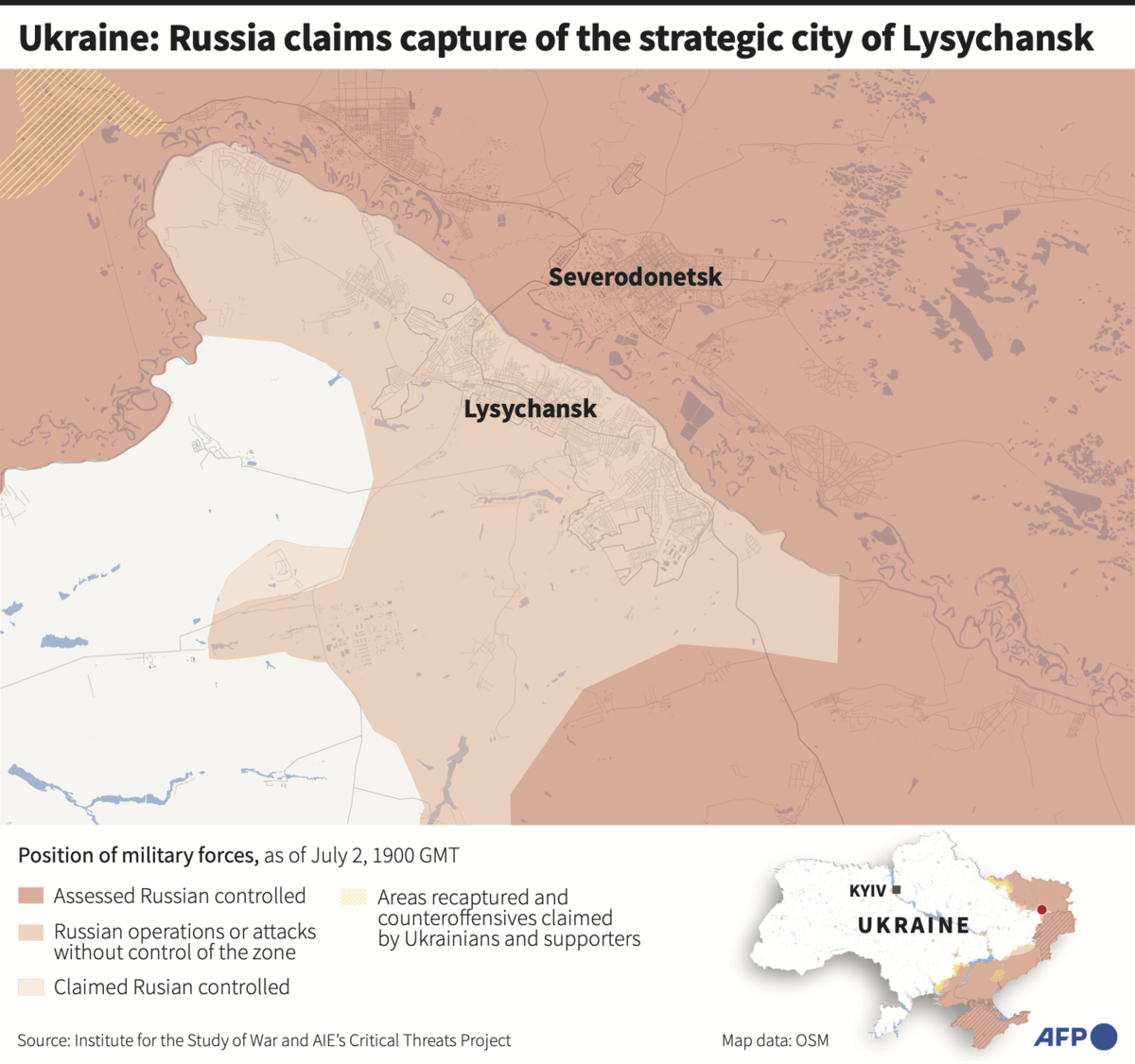
Since abandoning an assault on the capital Kyiv, Russia has concentrated its military operation on the industrial Donbas heartland that comprises the Luhansk and Donetsk regions, where Moscow-backed separatist proxies have been fighting Ukraine since 2014.
Russian Defense Minister Sergei Shoigu informed President Vladimir Putin that Luhansk had been “liberated,” the defense ministry said, after Russia earlier said its forces had captured villages around Lysychansk and encircled the city.
Ukraine’s military command said its forces had been forced to retreat from the city.
“The continuation of the defense of the city would lead to fatal consequences. In order to preserve the lives of Ukrainian defenders, a decision was made to withdraw,” it said in a statement on social media.
Ukrainian officials, who say references to “liberating” Ukrainian territory are Russian propaganda, had reported intense artillery barrages on residential areas.
West of Lysychansk in Donetsk region, at least six people were killed when the Ukrainian city of Sloviansk was hit by powerful shelling from multiple rocket launchers on Sunday, local officials said.
Costly campaign
Thousands of civilians have been killed and cities levelled since Russia invaded on Feb. 24, with Kyiv accusing Moscow of deliberately targeting civilians. Moscow denies this.
Russia says what it calls a “special military operation” in Ukraine aims to protect Russian speakers from nationalists. Ukraine and its Western allies say this is a baseless pretext for flagrant aggression that aims to seize territory.
While Russia would try to frame its advance in Luhansk as a significant moment in the war, it came at a high cost to Russia’s military, said Neil Melvin of the London-based think tank RUSI.
“Ukraine’s position was never that they could defend all of this. What they’ve been trying to do is to slow down the Russian assault and cause maximum damage, while they build up for a counteroffensive,” he said.
Kharkhiv strikes
Zelensky said Russia had “brutally” struck Kharkiv, Kramatorsk and Sloviansk with rocket attacks, leaving six dead and 20 wounded in Sloviansk alone.
Russia’s defense ministry also said on Sunday it had struck the military infrastructure of Kharkiv, Ukraine’s second-largest city in the northeast, where a Reuters reporter said Ukrainian forces had been building fortifications after nightly shelling.
Outside a school in Kharkiv, some residents threw debris into a large crater created by an early morning rocket strike while others got help repairing damaged houses.
“The wife was lucky that she woke up early in the morning because the roof fell exactly where she had been sleeping,” one resident, Oleksii Mihulin, told Reuters.
About 70 km (44 miles) from Kharkiv on the Russian side of the border, Russia also reported explosions on Sunday in Belgorod, which it said killed at least three people and destroyed homes.
“The sound was so strong that I jumped up, I woke up, got very scared and started screaming,” a Belgorod resident told Reuters, adding the blasts occurred around 3 a.m. (0000 GMT).
Moscow has accused Kyiv of numerous attacks on Belgorod and other areas bordering Ukraine. Kyiv has never claimed responsibility for any of these incidents.
Military base hit
Ukraine said its air force had flown some 15 sorties “in virtually all directions of hostilities,” destroying equipment and two ammunition depots.
In the Russian-occupied southern Ukrainian city of Melitopol, Ukrainian forces hit a military logistics base with more than 30 strikes on Sunday, the city’s exiled mayor Ivan Fedorov said. A Russian-installed official confirmed that strikes had hit the city.
Reuters could not independently verify the battlefield reports.
Ukraine has repeatedly appealed for an acceleration in weapons supplies from the West, saying its forces are heavily outgunned.




